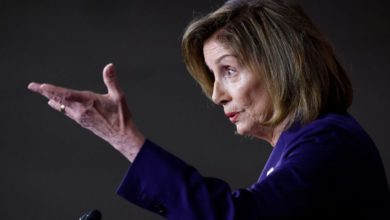What a Beijing Lockdown Would Mean for China and the World

Millions of residents in Beijing are undergoing mass COVID-19 testing as the Chinese capital tries to control an outbreak and avoid a paralyzing lockdown like those currently in force in several cities in China—most notably Shanghai, where a shutdown is in its fifth week.
Fearing the long-term business impact of such draconian measures—which the authorities appear determined to keep up even in the face of the highly transmissible Omicron variant—investors have been pulling capital out of China. Global markets also have to be ready for continuing supply-chain challenges.
But while stricter controls remain a possibility, experts say a total lockdown of Beijing would cause less economic disruption than Shanghai’s. Although both cities contribute similar shares of China’s GDP (Beijing’s being 3.6% and Shanghai’s 3.8%), they play different economic roles, explains Gary Ng, senior economist for Asia-Pacific at investment bank Natixis.
The finance and trading hub of Shanghai is at the heart of China’s Yangtze River Delta (YRD) region, a huge conurbation that sprawls across the provinces of Zhejiang, Jiangsu, and Anhui, and makes up nearly a quarter of China’s economy. It is home to more than 235 million people. There are many electronics, automotive and other manufacturing plants that provide the rest the world. Shanghai is also the world’s busiest container port.
Continue reading: Global Shortages Loom as China’s Lockdowns Continue
On the other hand, Ng says, Beijing is part of the so-called Jing-Jin-Ji metropolitan area, an economic grouping that includes Hebei province and the Tianjin municipality, but with less than half the population of the YRD and making up only 8% of China’s economy.
Thus “for Shanghai, the restrictions add fuel to the fire of the supply chain disruption,” Ng tells TIME. But “for Beijing, the effect is more symbolic,” given that it is the seat of government and home to the headquarters of 52 companies in the Fortune Global 500—the most of any city.
As he guides people to the Central Business District of Chaoyang for COVID-19 testing, a health worker is wearing a protective suit.
Kevin Frayer/Getty Images
The politics behind China’s zero-COVID policy
However, Beijing’s lockdown will make it more difficult to achieve the annual 5.5% economic growth goal. This is especially considering China has other challenges, such as the disruptions caused by the conflict in Ukraine and the effect of U.S. Inflation on Chinese demand. In a bid to stimulate the economy, President Xi Jinping called Tuesday for “all-out efforts” to expand infrastructure construction, the official Xinhua news agency reported.
China’s leader has much riding on the success of the country’s pandemic measures. China’s Communist Party (CCP), which is holding its 20th National Congress this fall, will host Xi, who is likely to win an unprecedented third term.
XI and the party have presented China’s zero-COVID strategy as a humanitarian response to the coronavirus because of its emphasis on saving lives over saving profits. The strategy has had a tremendous success rate in reducing mortality. The world’s most populous nation has recorded fewer than 5,000 COVID-19 fatalities compared to the U.S. death toll of nearly a million.
However, the Chinese have had to pay a heavy price for their restrictions on freedoms. Apps that track health are used to regulate many areas of daily life including transport access and use of public facilities. It is a part of daily life to have to undergo mandatory testing or endure lengthy queues. During the most stringent forms of lockdowns, people are not allowed to leave their homes for weeks on end—depending for essential supplies on volunteers or erratic delivery services—or they may be ordered into makeshift isolation centers. Separation of parents and children has occurred.
Continue reading: China’s Deepening Showdown With COVID-19
The Shanghai lockdown, in particular, has been a grueling test of patience for the city’s 25 million inhabitants, with reports of tense confrontations with authorities and even rare protests. Steve Tsang of the SOAS China Institute, London says that although the CCP does not consider the measures a failure, he insists.
“A full lockdown in Beijing with similar level of mismanagement in Shanghai will be seen by many outside of China as a demonstration of failure but it will not be allowed to be so portrayed in China,” Tsang tells TIME.
According to Huang Tianlei, a research fellow at the Peterson Institute for International Economics in Washington D.C., an uncontrolled coronavirus outbreak will “overwhelm the country’s weak medical system”—especially, he says, “in lower-tier cities and rural areas where there aren’t enough medical resources.” Millions of China’s unvaccinated elderly could fall seriously ill or lose their lives.
Although it will not directly impact Xi, such an outcome would have poor optics during a year of political uncertainty. This is important for the stability and security of the regime. It will remain firm in its commitment to zero COVID policies, with any disruptions being ignored.
“There will be anger,” says Tsang at SOAS. “But it will largely be suppressed.”
Read More From Time





